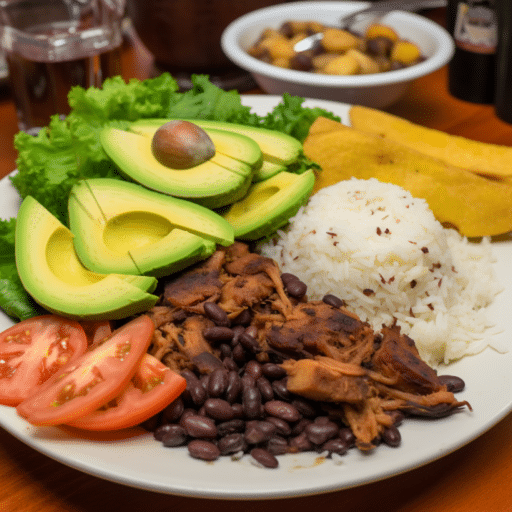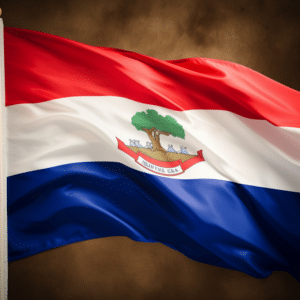The decision to move from the US to Costa Rica is one that many Americans have made in recent years. The reasons are varied and compelling, from the country’s stunning natural beauty to its vibrant culture and community.
But beyond the scenic vistas and warm-hearted locals, there are practical considerations to address, especially when it comes to finances. This guide aims to shed light on the financial aspects of relocating from the US to Costa Rica, arming you with the knowledge you need for a seamless transition.
If you want to invest as an expat or high-net-worth individual, you can email me (advice@adamfayed.com) or use these contact options.
Table of Contents
Why US to Costa Rica?
Costa Rica, with its strategic location close to the US, has become a top destination for Americans looking for a change. Here are some reasons that have fueled this trend:
Affordability
One of the primary attractions of Us to Costa Rica is its affordability. Whether it’s housing, healthcare, or general living expenses, many find their dollars stretch further here than in the US.
Exceptional Healthcare
Us to Costa Rica boasts a robust healthcare system that offers high-quality services at a fraction of the cost compared to the US. This has especially attracted retirees and those seeking medical treatments.

Natural Beauty and Activities
From its pristine beaches to lush rainforests, Us to Costa Rica offers a diverse range of landscapes and activities. Whether you’re an adventure seeker or someone looking for tranquility, there’s something for everyone.
Expat-Friendly Communities
With a growing number of Americans relocating to Us to Costa Rica, expat communities have flourished. These communities provide a support system, making the transition from the US to Costa Rica smoother.
Practical Considerations
While the benefits of living in Costa Rica are numerous, it’s essential to approach the move with a practical mindset:
Safety and Stability
Costa Rica stands out in Central America for its safety and political stability. While it’s always essential to exercise caution, many expats feel secure in their new home.
Proximity to the US
Being close to the US means that travel back and forth is relatively straightforward, making it easier for expats to visit family and friends.
Infrastructure and Amenities
Over the years, Costa Rica has developed its infrastructure to cater to both locals and expats. From modern roads to reliable internet services, the country ensures that residents have access to essential amenities.
Cultural Integration
While many locals speak English, especially in tourist areas, learning Spanish and understanding local customs can enrich the experience of living in Costa Rica.
Understanding the Cost of Living
Relocating from the US to Costa Rica often prompts individuals to assess the cost of living differences between the two countries. A significant draw for many expats is that Costa Rica typically offers a more affordable lifestyle than the US.
Comparing the Cost of Living: US vs. Costa Rica
Housing and Utilities
Costa Rica presents a more budget-friendly housing market compared to many US cities. For instance, the average rent for a one-bedroom apartment in Costa Rica is around $465, while in the US, it’s approximately $1470.
Utilities, which encompass electricity, water, and other services, generally come at a reduced cost in Costa Rica compared to the US.
Food and Dining
Costa Rica boasts a rich array of local produce and dishes that are not only delicious but also wallet-friendly. Dining out at local eateries or “sodas” can be quite economical.
However, it’s essential to note that imported goods, especially those from the US, tend to carry a higher price tag in Costa Rica.
Transportation
While the allure of having a personal vehicle might be strong, it’s worth noting that cars in Costa Rica can come with hefty import taxes, making them more expensive.
On the brighter side, Costa Rica offers an extensive public transportation system, including buses and taxis, that provides an economical alternative for daily commutes.
Healthcare
One of the standout features of moving from the US to Costa Rica is the high-quality healthcare available at a fraction of US prices.
The country’s public healthcare system, known as the Caja, provides comprehensive coverage, and many expats also choose private insurance plans, which, despite being private, are often more affordable than US counterparts.

Banking and Financial Services
Managing your finances when moving from the US to Costa Rica can seem daunting, but with the right information, it becomes manageable.
Opening a bank account in Costa Rica
Required documents and procedures
When you decide to open a bank account in Costa Rica, preparation is key. Most Costa Rican banks require individuals to be present in person to initiate the process. The standard documents you’ll need include:
- Your original passport and a copy of the ID page.
- Bank statements from the last three months.
- A utility bill or lease statement to verify your address.
- A statement of funds, giving the bank an idea of your financial standing. If you’re working in Costa Rica, your work contract with the stated salary can serve this purpose.
Some banks might also request a letter of reference from your previous bank.
If you’re not yet a legal resident, certain banks might allow you to open a basic or savings account, which typically doesn’t come with an ATM or debit card. Once you secure your residency status, you can upgrade to a regular account.
Choosing the right bank
When moving from the US to Costa Rica, it’s crucial to select a bank that aligns with your needs. One of the top recommendations for foreigners is the state-owned Banco de Costa Rica (BCR).
BCR stands out because it allows foreigners to open accounts even before obtaining legal residency in the country. All you need is a valid ID, contact information, and a local address.
Other notable banks include Banco Nacional de Costa Rica, Banco Promerica, and Banco BAC San José. For those who prefer international banks, options like ScotiaBank, Citibank, Bank of America, and HSBC operate in Costa Rica.
Transferring money between the US and Costa Rica
Understanding exchange rates
Currency exchange rates fluctuate, so it’s essential to stay informed. When transferring money from the US to Costa Rica, monitor the rates to ensure you’re getting a fair deal. Numerous online tools provide real-time updates on currency exchange rates.
Avoiding high transfer fees
Transferring money between the US and Costa Rica can come with fees. To minimize these costs, consider using reputable online transfer services known for competitive rates.
Additionally, some banks in Costa Rica offer favorable rates for international transfers, especially if you’re moving large sums. Research and compare the fees before committing to a service.
Taxes and Financial Regulations
When moving from the US to Costa Rica, understanding the tax landscape is crucial to avoid legal complications. Both countries have distinct tax systems, and being aware of your obligations can save you from unexpected financial burdens.
Understanding Costa Rica’s Tax System
Costa Rica’s tax system is based on the territoriality principle. This means that the country taxes income earned within its borders, regardless of the taxpayer’s nationality or resident status.
Income tax for expats
If you decide to work locally after moving from the US to Costa Rica, it’s essential to familiarize yourself with the tax brackets.
For individuals domiciled in Costa Rica, any income derived from assets used, goods located, or services rendered within the country is considered as Costa Rican-source income and is taxable.
- Self-employed individuals: Tax rates for self-employed individuals vary based on annual taxable income. For the tax year 2019, the rates were as follows:
- Up to CRC 4,181,000: 0%
- CRC 4,181,000 to 6,244,000: 10%
- CRC 6,244,000 to 10,414,000: 15%
- CRC 10,414,000 to 20,872,000: 20%
- Above CRC 20,872,000: 25%
- Employed individuals: Tax rates for employed individuals are based on monthly salary. The rates for the tax year 2019 were:
- Up to CRC 941,000: 0%
- CRC 941,000 to 1,381,000: 10%
- CRC 1,381,000 to 2,423,000: 15%
- CRC 2,423,000 to 4,845,000: 20%
- Above CRC 4,845,000: 25%
It’s worth noting that these tax brackets for both self-employed and salaried employees are adjusted annually.
Sales tax and other local taxes
Costa Rica imposes a 13% sales tax. When budgeting, especially after a recent move from the US to Costa Rica, it’s essential to factor this into your expenses. Additionally, none of the provinces or municipalities in Costa Rica impose any income taxes on individuals within their jurisdiction.
US Tax Obligations for Citizens Living Abroad
Even after moving from the US to Costa Rica, US citizens have certain tax obligations to their home country.
Foreign earned income exclusion
US citizens must report global income. However, depending on specific conditions, you may qualify for exclusions, which can reduce the tax you owe.
Reporting foreign bank accounts
If you have a bank account in Costa Rica with over $10,000 at any time, the US government requires you to report it. This is part of the US’s efforts to combat tax evasion and ensure transparency.

Real Estate and Property Investment
The real estate market in Costa Rica attracts many expats from the US, and 2023 has been no exception. With a robust growth trajectory, the market dynamics have evolved, presenting both opportunities and challenges for those looking to invest or settle.
Buying vs. renting in Costa Rica
Pros and cons of each option
When you’re considering a move from the US to Costa Rica, the decision to buy or rent is pivotal. Buying property in Costa Rica offers long-term stability and the potential for appreciation in value.
On the other hand, renting provides flexibility, especially if you’re unsure about permanent relocation or if you’re a digital nomad seeking short-term stays.
Legal considerations for foreign property owners
While Costa Rica is open to foreign property owners, it’s essential to be aware of the legal landscape. Before making a purchase, always consult with a local attorney to understand property rights, potential taxes, and any restrictions that might apply.
Navigating the Costa Rican real estate market
Popular areas for expats
Areas like the Central Valley and Guanacaste continue to be hotspots for expats moving from the US to Costa Rica. These regions offer a mix of urban conveniences and natural beauty, making them ideal for both permanent residents and those seeking vacation homes.
Understanding property values and trends
The Costa Rican real estate market has seen a significant upswing in recent years. In 2022, the sector experienced a 12% surge in sales, surpassing $3 billion in transactions. Experts predict an additional 15% increase in sales for 2023.
This growth is attributed to several factors, including the country’s stable political climate, robust economic growth, and the rise of digital nomads.
Costa Rica’s advanced tourism service infrastructure, ranking among the most developed in Latin America, serves as a foundation for attracting both local and international investors. This has driven demand for real estate properties, from beachfront villas to mountain retreats.
The government of Costa Rica has also played a role by implementing mechanisms to bolster the real estate sector. These include incentives designed to encourage developers and investors, fostering a thriving market that benefits all stakeholders.
Furthermore, the rise of digital nomads has significantly influenced the real estate industry. Costa Rica, with its balance of leisure options and a lower cost of living, has become an attractive destination for this new breed of professionals.
The recent law aimed at attracting remote workers offers benefits such as extended visas and tax exemptions, further boosting the country’s appeal.
Impact of Digital Nomads on the Real Estate Market
The influx of digital nomads has led to increased demand for rental properties, especially in coastal areas like Tamarindo, Nasara, and Jaco. These areas are also tourist hotspots, leading to a surge in rental prices.
Property owners have adapted by offering long-term rental agreements and flexible terms to cater to the needs of digital nomads. Interestingly, many digital nomads are now choosing to purchase properties in Costa Rica, either for permanent residency or as an investment.
This trend has contributed to the rise in real estate sales, especially in areas blending natural beauty with modern amenities.
Retirement and Pension Planning
Costa Rica has rapidly emerged as a top retirement destination for many individuals moving from the US to Costa Rica.
The nation’s warm climate, stunning landscapes, and friendly culture make it an attractive choice. But beyond the natural beauty and welcoming environment, Costa Rica offers specific financial incentives and programs tailored for retirees.
Costa Rica’s pensionado program for retirees
Eligibility criteria
To qualify for the Residency from Pension in Costa Rica, or the Pensionado category, you or your spouse should receive a monthly pension or disability pension of at least $1,000 USD for the rest of your life.
This pension can come from various eligible sources, including retirement plan companies, social security, or armed forces pension systems. This category does not require a deposit in a Costa Rican bank or any form of investment in the country.
Eligibility criteria
To qualify for the Residency from Pension in Costa Rica, or the Pensionado category, you or your spouse should receive a monthly pension or disability pension of at least $1,000 USD for the rest of your life.
This pension can come from various eligible sources, including retirement plan companies, social security, or government agencies.
Benefits and incentives
The Pensionado category offers retirees a plethora of benefits. One of the most significant advantages is that retirees moving from the US to Costa Rica under this program don’t pay taxes on income received from outside Costa Rica.
Additionally, upon approval of your residency, you get registered with the Social Security and Public Health Care System (CCSS or Caja) in Costa Rica, which even covers pre-existing conditions.
Managing US-based retirement accounts from Costa Rica
When you move from the US to Costa Rica, managing your US-based retirement accounts is crucial to ensure you continue to benefit from your savings and investments.
Accessing funds
Most US banks permit international withdrawals. However, it’s essential to be vigilant about potential fees associated with these transactions.
Before making a move from the US to Costa Rica, consult with your bank about international transaction fees and any other charges that might apply.
Tax implications
While Costa Rica offers tax advantages for pension income, US citizens must remember their tax obligations back home. The US taxes its citizens on global income.
However, there are provisions like the Foreign Earned Income Exclusion that can reduce the tax burden for US expats living in Costa Rica.
It’s advisable to consult with a tax professional familiar with both US and Costa Rican tax laws to ensure compliance and optimize your tax situation.
Additional Considerations for Pensionado Residency
When considering the Pensionado residency, it’s essential to understand its specifications. The residency is temporary and valid for two years but can be renewed.
After holding the Pensionado residency for three years, you can apply for permanent residency without any additional conditions. If you have dependents, such as a spouse or children aged 24 or younger, you can include them in your residency application.
Moreover, Pensionado residents can own a company in Costa Rica and receive dividends from it.

Application Process and Documents
To apply for the Pensionado Residency, you’ll need to provide various documents, including proof of your pension, a clean criminal record certificate, birth and marriage certificates, and recent passport-sized photographs.
All documents should be apostilled in your country of origin or authenticated at the Costa Rican Embassy if your country isn’t part of the Apostille Convention.
Pained by financial indecision? Want to invest with Adam?

Adam is an internationally recognised author on financial matters, with over 760.2 million answer views on Quora.com, a widely sold book on Amazon, and a contributor on Forbes.



